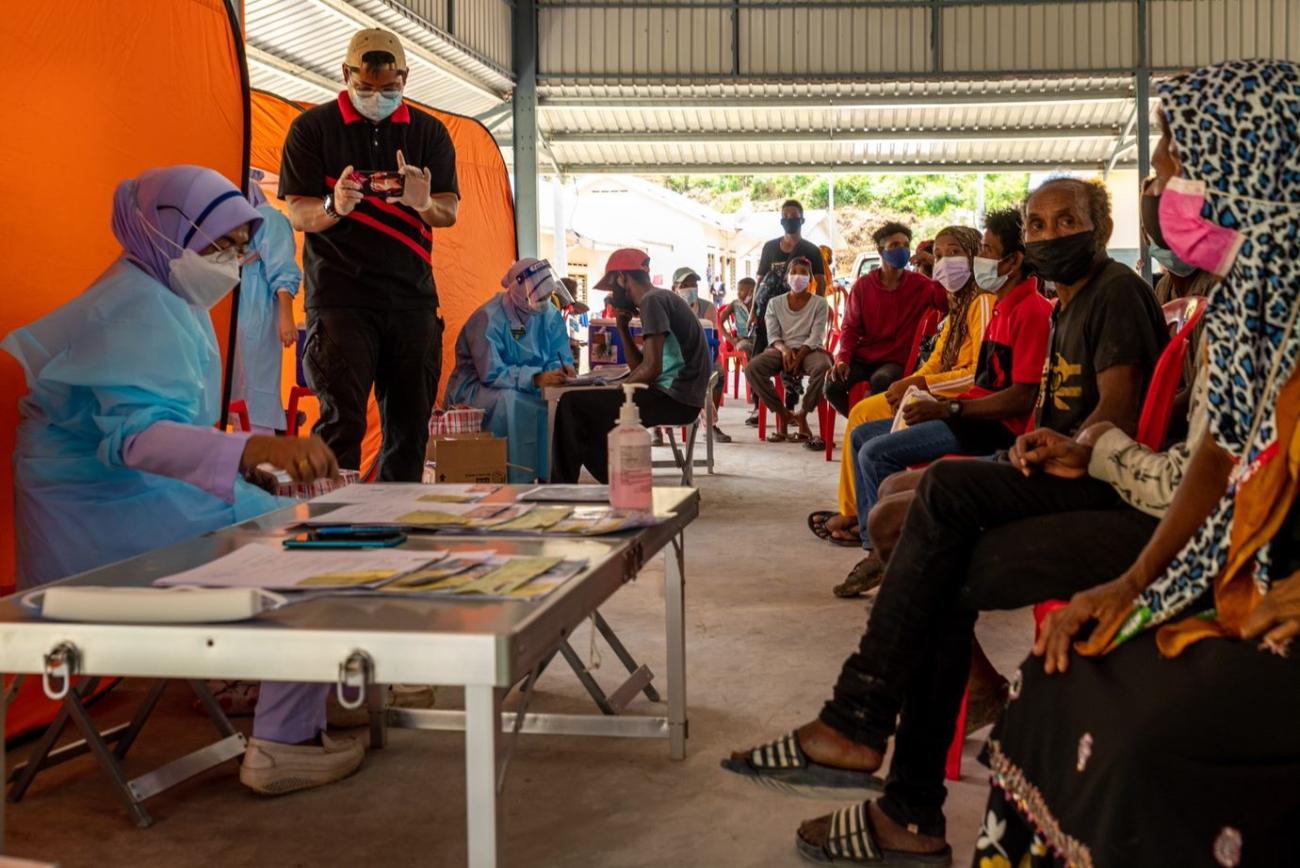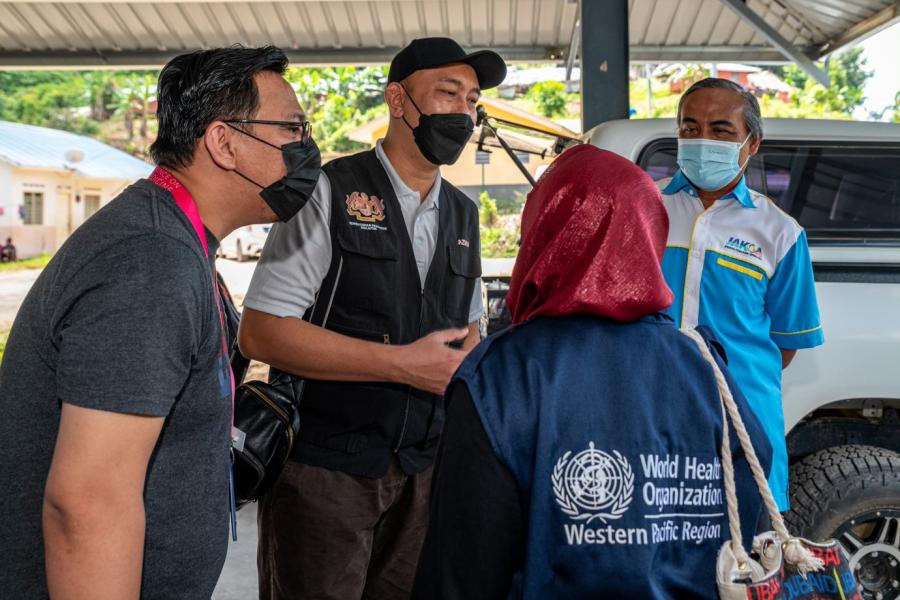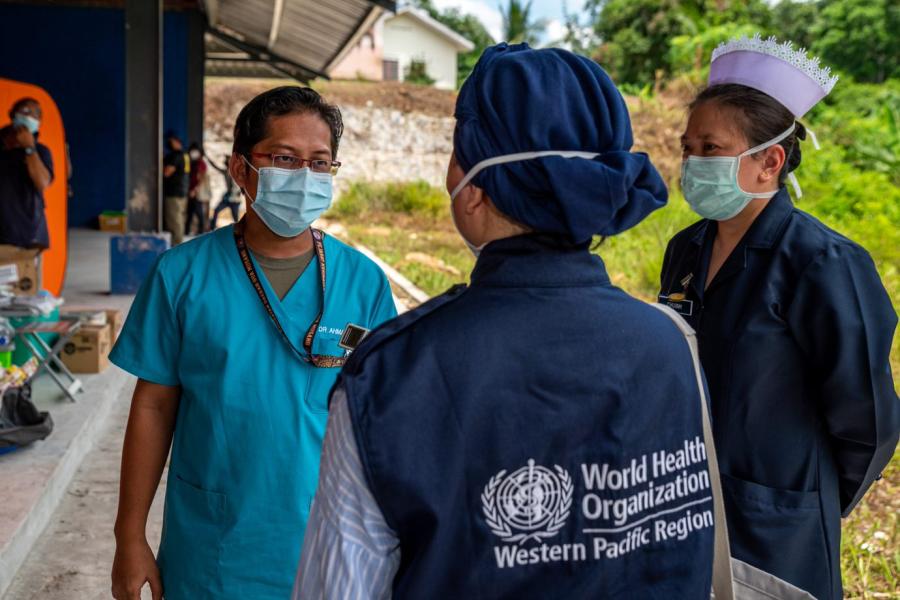Reaching the unreached: COVID-19 vaccination for one of Malaysia’s indigenous tribes

COVID-19 vaccination among the Bateq tribe in Gua Musang, Kelantan was conducted successfully with the engagement of various sectors and the community leader.
Read the original article here
“I do not want my tribe to suffer from more deaths of family members,” said Muhammad Pokok, the Tok Batin (tribal leader) of the Bateq community living in Kuala Koh, a village in the northern part of Kelantan, a state on the north-east coast of Malaysia’s peninsula, almost 500 kilometres from Kuala Lumpur.

Pokok's tribe, Bateq, is one of 18 indigenous (Orang Asli) tribes in Malaysia. Around 19 groups of the Bateq tribe live nomadically in the states of Pahang, Terengganu and Kelantan. Their distinctive physical features, language and devotion to their ancestral beliefs have created an invisible wall between them and most Malaysians. In Kuala Koh, the Bateq's community settlement consists of around 10 wooden houses, each accommodating two to four families. The men of this community usually spend days in the forest, foraging, fishing and hunting, and the women stay with the children. The members rely heavily on each other.
In mid-2019, a mysterious illness killed 15 members, a huge loss for a close-knitted community of about 200 members. In response to the crisis, the Kelantan Health Department conducted an epidemiological investigation, confirmed that measles was the cause of the deaths, and conducted a mass vaccination for the community. The health response went well with the facilitation of the local Department of Indigenous People (Orang Asli) Development, commonly known as JAKOA, a government agency trusted to oversee the affairs of Malaysian indigenous tribes.
Since then, health-care workers from the nearest community health clinic, Kuala Aring 1, have visited the community every month to provide necessary medical care, especially for women and children, as unsafe home births and malnutrition are the biggest health problems facing the Bateq tribe in Kuala Koh. Despite literacy and language challenges, the health workers provide health education to the tribe members, particularly the women.
When news of the COVID-19 outbreak in Malaysia reached Kuala Koh, many members of the Bateq community tried to isolate by going further into the forest. Health-care workers from the clinic set out to quickly disseminate information about the new, highly transmissible disease to prevent an outbreak of COVID-19 in a community that goes about its daily activities in physical closeness.
"Yes, we know about the outbreak," said Hazlan, a 22-year-old father of two, when asked what he knew about COVID-19. He went on to list the symptoms of COVID-19, such as cough, fever, loss of taste and difficulty breathing. "The health workers gave us the information, and they also played a film for us," he explained. Like other community members, Hazlan tried to go further into the forest to avoid interactions with people outside of his tribe when he heard about the outbreak of a new disease in Malaysia.
Hazlan attended a COVID-19 vaccination activity in Kuala Koh, conducted on 28 September 2021 by the Department of Health, in collaboration with JAKOA and the local departments of education and forestry. He heard about COVID-19 vaccination in Malaysia from social media and was persuaded by the Tok Batin to get vaccinated. The Tok Batin called on all those eligible to get vaccinated to protect the community against COVID-19.
The COVID-19 vaccination event took place in a newly built, open community hall in the Bateq settlement in Kuala Koh. The event was more than a mere medical procedure, with songs and games being played and snacks and food being distributed. Local community leaders and officials from different government institutions came to show their support.
Of the 130 community members who registered for COVID-19 vaccination, 107 were vaccinated on 28 September 2021, including 15 adolescents aged 12–17. A single dose of the CanSino vaccine was given to adults, and the first dose of the Pfizer-BioNTech vaccine was given to adolescents, elderly people and adults with comorbidities. For those receiving the Pfizer-BioNTech vaccine, the second dose was given the following month. Vaccination of the three indigenous tribes (Bateq, Termiar and Mandriq) living in Gua Musang is critical to contain COVID-19. For the Bateq tribe in Kuala Koh, vaccination was necessary to prevent another major loss.

Dr Ahmad Imran bin Mohamed, the head of Health Services for Indigenous Tribe, Gua Musang Health Department, said that convincing Bateq's Tok Batin to allow COVID-19 vaccination for his tribe was a challenge. The Health Department involved the community engagement cadres who are part of the COMBI (Communication for Behavioural Impact) programme under the Health Education and Communication Centre in the Ministry of Health, and the community engagement focal points of JAKOA. These cadres have worked closely with the tribe to prevent outbreaks and promote the health of the Bateq community and have gained their trust.
Support also came from the Institute for Health Behavioural Research, which has studied the behaviour of indigenous tribes, including the Bateq. The research findings informed the local authority approaches: to make COVID-19 vaccination possible by engaging the tribe leader and packaging the vaccination activity into a more appealing event. Another approach was to equip the tribe members working in the local forest department with the correct information about COVID-19 during their vaccination. They then shared the messages with their family and community. Chuinh Wimbi, a matron in the Gua Musang Health Department, stressed the importance of explaining to tribal leaders the common side-effects of vaccination.

Within four days in September, the Health Department vaccinated more than 1600 people from indigenous tribes living in the remote settlements with the transport support of firefighters. By the end of October 2021, the Gua Musang Health Department had vaccinated 10 066 (75%) adult members of indigenous tribes. By 5 November 2021, 7542 adults had received a single dose of the CanSino vaccine or two doses of the Pfizer-BioNTech vaccine.
The Malaysian Government's success in inoculating the population is due to its rigorous efforts to reach every section of society and every tribe in every corner of the country through its inclusive Malaysian National COVID-19 Immunisation Programme (PICK). In line with the WHO Immunization Agenda 2030: A Global Strategy to Leave No One Behind, the Government provides various types and sizes of vaccination sessions so that no one is left behind, particularly those who are vulnerable, marginalized and have been unreached by regular health services. Local authorities are working with communities and community engagement champions, especially COMBI and KOSPEN (Healthy Community for National Development) to provide direct and interpersonal information to the community members about COVID-19 vaccination.
The Director-General of WHO Tedros Adhanom Ghebreyesus once said, “Committed leadership, community engagement and prioritizing public health form the backbone of any country’s response to COVID19.” WHO collaborates with civil society organizations (CSOs) in Malaysia to realize this vision, engaging community and religious leaders to convince community members, listening to the community and providing the information needed, working with CSOs to extend the reach of vaccination to those who have difficulty accessing the vaccine.




